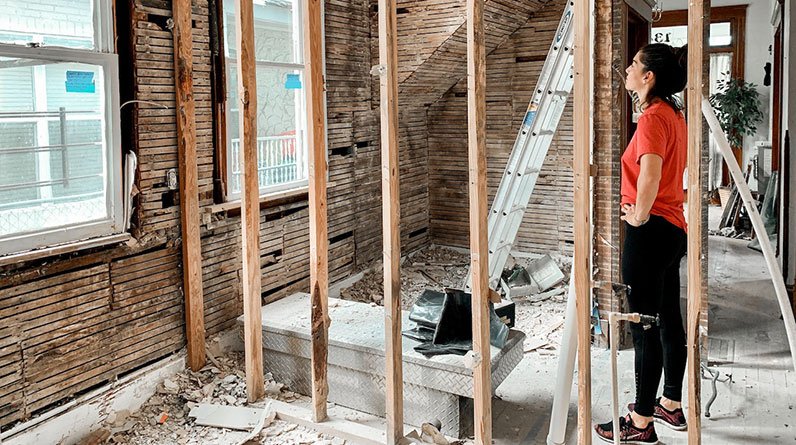
Finding Good Residential Investment Properties
If you’re investing in residential real estate, it is essential to comprehend the fundamentals of finding quality properties. Doing this will help you avoid common errors when selecting properties and guarantee your investment will yield returns.
As always, location is essential to the success of a property, and should always be taken into account when making your decision. Furthermore, consider what financial goals and objectives you have for the purchase as they will determine its success.
Identifying the Right Rental Properties for Your Portfolio
Location is especially critical if you plan to own the property long-term. The neighborhood you select will significantly influence both vacancy rate and potential tenants available.
Ideally, you should aim to locate your rental property in an area with high housing demand. Doing so will guarantee a consistent source of income even during economic downturns.
Additionally, buying a property in an area with plenty of job prospects is wise. Doing so will attract more potential tenants to your property and bring in higher rents as a result.
When investing in an area, you should take into account the school district. This could affect the resale value of your home if you decide to sell it down the line.
A desirable school district is essential for drawing in quality tenants and upholding the neighborhood’s quality. Furthermore, it helps guarantee your property remains a secure haven for your tenants to live.
When purchasing a rental property, one important factor to consider is the area’s crime rates. Research the frequency and severity of petty crimes and vandalism as well as police presence in the area.
When searching for the ideal rental property, the average rent in the area should be taken into account. This will tell you how much income can be generated from your property and how much money needs to be spent on repairs, upkeep and insurance. Furthermore, using this data allows you to estimate both your total cash investment and return on investment (ROI).
Uncovering the Hidden Opportunities in Real Estate Investing
Most investors use a real estate agent to purchase their properties. This is because real estate agents possess contacts, connections, and sources of information that could help you uncover overlooked opportunities.
Real estate agents can also give you access to off-market properties. These tend to be cheaper and have fewer potential buyers competing for them, making them ideal for fix-and-flip investors, buy-and-hold investors and wholesale real estate buyers alike.
Another way to maximize your real estate ROI is by investing in undervalued properties that you can upgrade for increased market value.
Foreclosures and auctions offer great real estate investment opportunities. Investors can purchase properties at discounted prices from foreclosure sales or auction prices and hold them for a period of time before selling them at a higher value.
The National Association of Realtors predicts that many of these undervalued homes have the best chance to increase in value more quickly. Therefore, if you purchase these houses now and hold them for a few months, they could represent an excellent investment opportunity.
Analyzing the Market to Make Profitable Investments
When researching a property, many factors must be taken into account. How it will be utilized by potential renters, local supply and demand patterns, property tax rates – these types of trends often go overlooked in investing circles but can help you make informed decisions about your investment options.
Successful investing doesn’t come easy – you must create and follow a plan, or else the journey could prove frustratingly difficult to navigate. There are four stages to successful investing: Stage 1 (unconscious incompetence), Stage 2 (conscious competence), Stage 3 (conscious excellence), and Stage 4 (mastery). Learn more about each stage, determine where you currently stand with these goals, then get started on your path towards wealth creation!
Avoiding the Traps of Poorly Chosen Investment Properties
Accessibility: One of the most overlooked factors is not considering th property needs to be accessible by public transport. The demand for homes in close proximity to major transport routes has risen considerably.
It’s important to understand that neighborhoods and communities change constantly. You need to be aware of the plans for future developments in your area so that you can evaluate their impact on your real estate investment.
Appreciation: Real estate and other assets like stocks, gold and silver, land, fine wine and rare artwork often increase in value over time. Appreciation can also occur because of changes in inflation or interest rates.
Generally, appreciation is considered a positive aspect of investing in real estate. However, it is important to note that appreciation isn’t always guaranteed.
Appreciation in real estate can be influenced by various factors such as inflation, interest rates, schools, local job opportunities and home improvements.
In addition, real estate can appreciate when a market is strong and the local economy is growing. In this case, housing demand increases as more jobs are created and rents increase for rental properties in the area.
Cash-flow: When choosing an investment property, it’s important to take cash-flow into account. This will help you avoid the traps of poorly chosen properties that will result in poor returns on your investment.
Cash-flow is the amount of money that a business generates and spends over a period of time. A company can have positive cash flow or negative cash flow, depending on how it manages its funds.
If a company has positive cash flow, they can continue to invest in their business and expand without worrying about running out of cash. It also makes them more attractive to investors and lenders, which is vital for their future growth.
A cash flow analysis looks at a company’s operating and investing activities and compares them to the amount of cash that is generated from sales. This information allows companies to understand their current cash position and determine whether they need additional capital. It can also be used to forecast cash inflow and outflow for a specific period.
Tax Obligations and Costs: When choosing an investment property, you want to make sure that it fits your financial strategy. This means that you should consider your budget, income and expenses. It may also be a good idea to talk to industry professionals, such as an accountant or Home Lending Specialist, for more specialized advice.
Investing in real estate is a great way to build wealth and a solid retirement fund. Typically, you’ll be focusing on investing in properties that can grow your net worth via capital growth or rental income. But you also want to avoid the pitfalls of poor investment decisions, which are a common occurrence in this industry.






